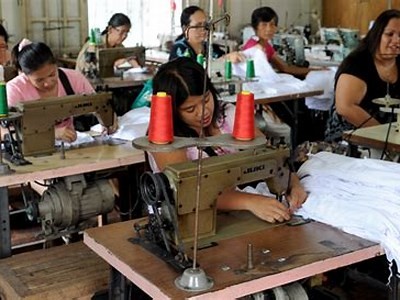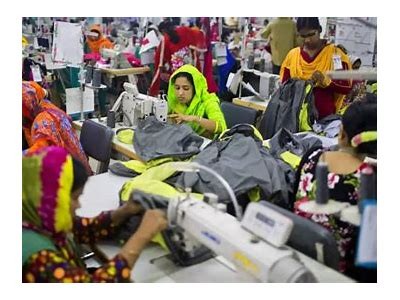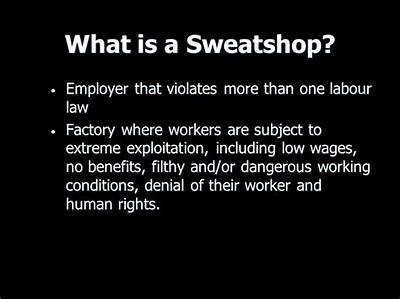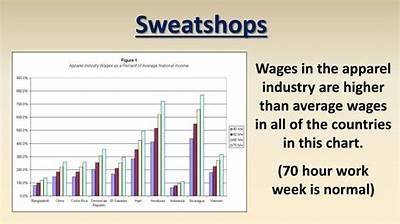Sweatshops have long been a topic of heated debate, especially in the context of globalization and international labor practices. While these factories are often criticized for their harsh working conditions and exploitation of workers, it is imperative to understand the complex role they play in the global economy. This article explores the significance of sweatshops and their impact on labor practices worldwide, examining both the benefits and drawbacks associated with these establishments.

Sweatshops are commonly defined as workplaces that violate labor laws and regulations, typically characterized by long hours, low wages, and unsafe conditions. These factories are often found in developing countries where labor laws are either weak or poorly enforced. As a result, many workers, including women and children, are subjected to grueling schedules and significant physical and emotional tolls.

The origin of sweatshops can be traced back to the industrial revolution in the 18th and 19th centuries when rapid industrialization led to the establishment of factories. As economies transitioned from agrarian to industrial setups, many workers migrated to urban areas in search of employment. Unfortunately, this shift was often accompanied by exploitation, as factory owners sought to maximize profits. The legacy of sweatshops has continued into the modern era, fueled by globalization and the demand for cheap labor.

Despite their negative connotation, sweatshops play a crucial role in the economies of many developing nations. They provide employment opportunities for millions, offering wages that are often higher than those available in local agricultural or informal sectors. For many workers, these jobs are a means of escaping poverty and improving their circumstances. Additionally, sweatshops can contribute to economic growth by attracting foreign investment and fostering industries that generate export revenues.

Understanding the importance of sweatshops also requires listening to the voices of workers themselves. Many employees in these settings express gratitude for the opportunities afforded to them, acknowledging that while conditions may be far from ideal, they still provide a lifeline for survival. Furthermore, the growth of labor movements and advocacy groups has empowered workers to demand better treatment, leading to gradual improvements in certain areas.

The ethical implications of sweatshops cannot be overlooked. Critics argue that it is unacceptable for companies to profit at the expense of vulnerable populations. These concerns have led to calls for more robust labor regulations and corporate social responsibility initiatives. However, what may be seen as an exploitation by some can also be viewed through the lens of economic necessity by others, emphasizing the need for a nuanced discussion. Globalization and Its Influence
Globalization has significantly influenced the proliferation of sweatshops. As multinational corporations seek to reduce production costs, they often move their manufacturing operations to countries with lax labor laws. This practice has led to increased scrutiny from consumers, activists, and some governments, prompting discussions about ethical sourcing and supply chain transparency. The Role of NGOs and Activism
Non-governmental organizations (NGOs) and labor rights activists have played a pivotal role in advocating for improved labor practices in sweatshops. Through campaigns, reports, and collaborations with local unions, these organizations work tirelessly to promote fair wages and safe working conditions. Their efforts have led to public awareness and pressure on corporations to adopt more ethical practices. The Path Forward
The future of sweatshops and labor practices worldwide lies in finding a balance between economic realities and ethical considerations. It may involve creating frameworks that support fair wages, safe working conditions, and opportunities for skill development. Collaborative efforts between governments, corporations, and civil society are pivotal in driving change. Conclusion
In conclusion, while sweatshops are often vilified for their exploitation, they serve a critical function in the global labor market. Understanding their importance entails recognizing the complex dynamics at play, including economic necessity and ethical responsibility. Striking a balance between these factors is essential for creating a future where labor practices promote dignity and sustainability for all workers.